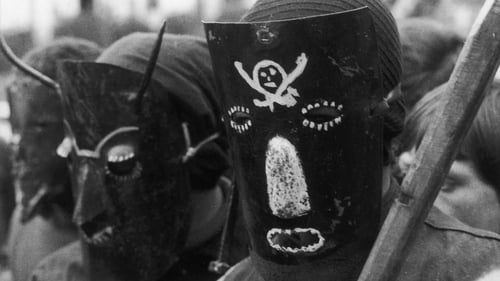
Director
Over the two and half years that he spent in the Casa de Santo Antonio in Lisbon, Philippe Costantini followed the arrivals and departures of very young mothers, from their pregnancy through to the first years with their child. At the centre of this small community of teenagers and their new-borns, the exclusively female staff see to it that the residents, whose family situations are chaotic, obey the rules. Keeping off-screen an often-mentioned violence, the film focuses on the daily lessons in mothering. What then emerges is everything that cannot be taught and which creates a fine dividing line between having a child and becoming a mother.

Director

Director
Ham, son of Noah, was damned for seeing his father naked: his descendants were condemned to serve Shem and Japheth, the "good" sons of Noah. Cush, son of Ham, is the forefather of black people. His sons will carry the curse of Ham throughout the history of slavery. Rouch adapts the text of Julius Amédé Laou, a delusional dialogue between two women.

Director of Photography
A fortuitous meeting, late one afternoon, in the garden of the Tuileries, of one or two cameras, a tape recorder, and three cameramen/directors, Raymond Depardon, Jean Rouch, and Philippe Costantini.

himself
A fortuitous meeting, late one afternoon, in the garden of the Tuileries, of one or two cameras, a tape recorder, and three cameramen/directors, Raymond Depardon, Jean Rouch, and Philippe Costantini.

Director
En las montañas del norte de Portugal, un pueblo aislado ve realizado cada siete años un Misterio de la Pasión interpretado por sus habitantes.

Sound Editor
The film sought to portray a relatively unknown and isolated rural world and, through a highly politicized discourse, affirmed the genuineness of “folk culture.” Representative of the new documentary film movement that developed in Portugal after the revolution, the movie encouraged the local retrieval of the Caretos tradition. A ritual that seemed to be doomed by the conjoined impact of emigration, the colonial war and the crisis of agriculture was thus brought back to life. - Paulo Raposo





